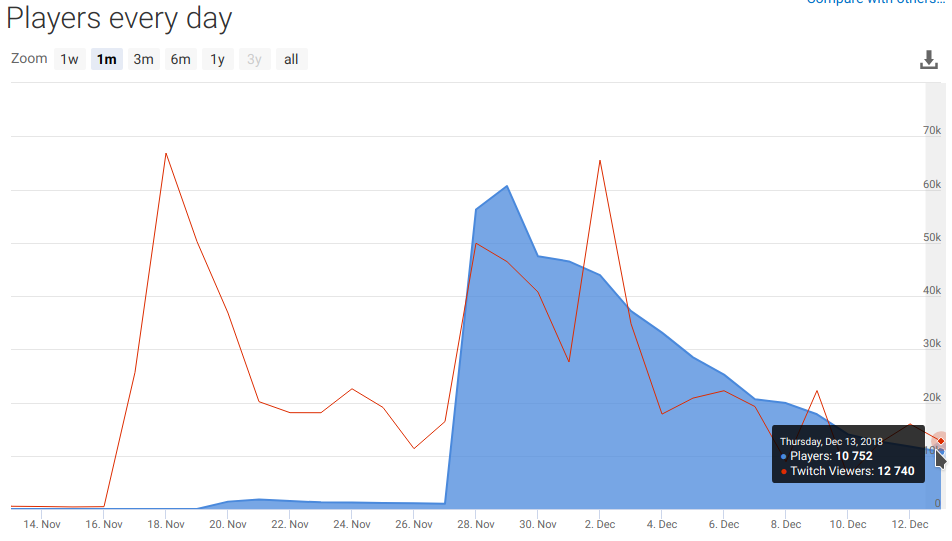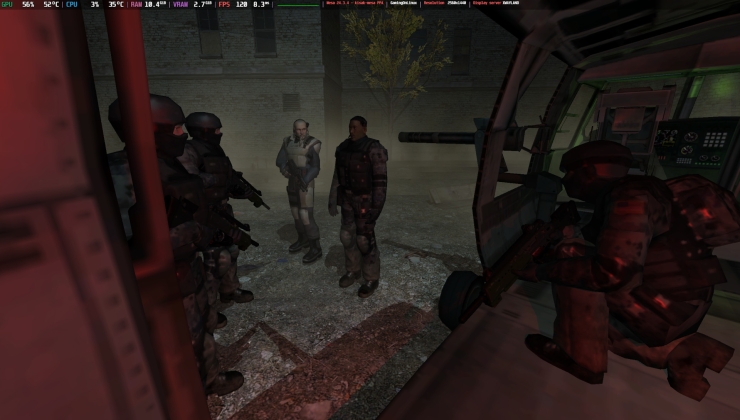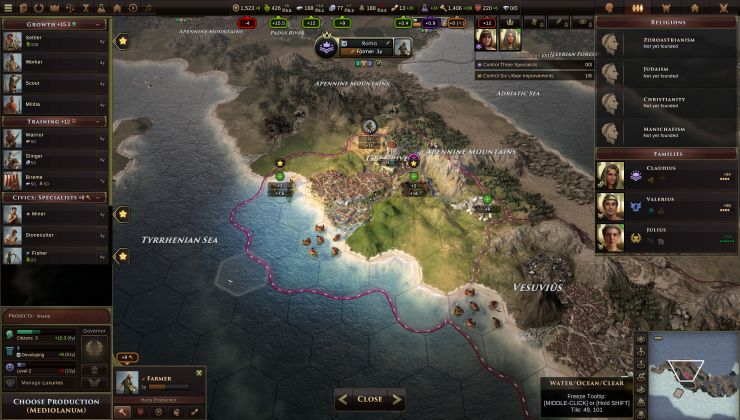Artifact, the big new card game from Valve isn't doing so well but Valve won't be giving up any time soon. The first major update is out, with a progression system due soon.
At release, it had around sixty thousand people playing and that very quickly dropped down hard. Harder than I expected, a lot worse than Valve probably thought it would too. Looking at the stats from SteamDB, it doesn't look good:
Speaking on Twitter, the Artifact team did state "We're in this for the long haul." when going over some updates and what's in store for the game. They have to say that though of course, anything less and it would worry people even more.
As the first step, they've released a major update already. They've expanded The Call to Arms event with new decks and introduced a random mode, so it picks a deck at random for you. Leaderboards are now implemented for the event too, showing how many wins in a row you've had per-deck which is reset every two weeks.
The tournament system has expanded further, with a new automated Open Tournaments feature. No waiting around, no setup required. You just join it and the system matches you up with others at random and you're all in it. Additionally, there's a new Free-for-All tournament mode, which sees you and others defeat as many opponents as you can over three which is open to user-made tournaments.
You can also now make your cards say voice lines, invite opponents to a Steam Chat, with simple controls to block any of that as well. There's now colour-blind support options, a Bot Challenge Gauntlet mode and a bunch of bug fixes. See all the updates in this update here.
After this, Valve are planning another update they're expecting to go live next week which will introduce "a skill-based progression system".
So far, Valve are supporting it well. However, the biggest issue for players is still the fact that you can only earn cards by spending money. Until they adjust this somehow, I honestly don't think it's going to recover any time soon. Shame, because the gameplay is fantastic. Perhaps this progression system might contain something? We will take a look when that update is out next week.
Find Artifact on Steam.
I don't know if it can be changed due to the real money aspects of the game.
Well another issue is the lack of regional pricing that all but locks people from outside US and Europe from the game.
I don't know if it can be changed due to the real money aspects of the game.
Regional pricing is not there because otherwise that would be a mess to trade cards in market. At least i think that might be the reason.
I really don't know how they could think this economy model was a good idea for a VIRTUAL cards game.
What's the difference between a virtual and a physical card game?
whats the difference between vinyl and mp3?I really don't know how they could think this economy model was a good idea for a VIRTUAL cards game.
What's the difference between a virtual and a physical card game?
Last edited by jasondaigo on 14 Dec 2018 at 11:21 am UTC
whats the difference between vinyl and mp3?I really don't know how they could think this economy model was a good idea for a VIRTUAL cards game.
What's the difference between a virtual and a physical card game?
mp3 is not physical and is compressed. A vinyl is more rare.
I already struggle with Dota 2 which is incredibly hard and, on top of it, you get insulted if you don't play perfectly. It's like a bad drug for me, I don't think I can handle two of them :D
whats the difference between vinyl and mp3?I really don't know how they could think this economy model was a good idea for a VIRTUAL cards game.
What's the difference between a virtual and a physical card game?
Real Scarcity and property of the bought thing. Virtual cards don't have real scarcity, they are infinite, so price is less organic.
Also they don't deteriorate and you don't really own them. You can't sell them anywhere you want and cant dispose of them in other ways (give them away, borrow them, make a poster with them, etc).
An MP3 can be owned and copied indefinitely and without loss so, in this case, scarcity and property isn't really valuable. But in the case of a virtual card, you can't actually copy them (the devs can, but you can't), which makes it scarce and, in turn, a bit more your own when you have it.
The blockchain is exactly about that actually: how to bring scarcity and property in a virtual world. Examples: you need to exchange money but don't want anyone to copy it at will; or you want diploma to be owned by one and only one person => you store that in a virtual ledger: the blockchain.
Last edited by Creak on 14 Dec 2018 at 12:19 pm UTC
Scarcity and property are still relevant, even in the virtual world. Not as much as in the physical world, but it is still a thing.
The blockchain is exactly about that actually: how to bring scarcity and property in a virtual world. Examples: you need to exchange money but don't want anyone to copy it at will; or you want diploma to be owned by one and only one person => you store that in a virtual ledger: the blockchain.
Exactly. Some people just need to get rid of the idea that physical things in themselves often just are worth anything. Money itself isn't worth much. It's just generated out of nothing.
Same.. I was quite excited by the title before the release, but the reviews went out and both the difficulty and the Pay2Win aspects made it so that I wasn't as excited anymore.whats ur rank currently? maybe we could play together some day. :-)
I already struggle with Dota 2 which is incredibly hard and, on top of it, you get insulted if you don't play perfectly. It's like a bad drug for me, I don't think I can handle two of them :D
I defended the Artifact idea already in another news. There is something to collect,thats it. No matter if its stickers or virtual articles. However its more exciting bringing these real items to a friend or a convention. U can technically copy virtual items in 100 years with ease. But some products will never be made again. like He-Man action figures or some exclusive Cards.Scarcity and property are still relevant, even in the virtual world. Not as much as in the physical world, but it is still a thing.
The blockchain is exactly about that actually: how to bring scarcity and property in a virtual world. Examples: you need to exchange money but don't want anyone to copy it at will; or you want diploma to be owned by one and only one person => you store that in a virtual ledger: the blockchain.
Exactly. Some people just need to get rid of the idea that physical things in themselves often just are worth anything. Money itself isn't worth much. It's just generated out of nothing.
In addition i think that everythings on the computer screeen should be worth less than real life. Everything people do online is potentially anti social. And thats not good change.
An MP3 can be owned and copied indefinitely and without loss so, in this case, scarcity and property isn't really valuable. But in the case of a virtual card, you can't actually copy them (the devs can, but you can't), which makes it scarce and, in turn, a bit more your own when you have it.
To be fair, scarcity works in the same way with physical cards, the cost per unit is the same for every and each card, but what makes them more or less valuable is how many of them the copyright owner decided to print.
About Artifact, I think that the issue may be the release platform. If this game was released on Android or iOS, it would definitely got a better reception/market.
- Electricity. Physical cards can be played anywhere, by candle light.
- Playing Concentration ("Memory") where the cards don't stay perfectly rectilinear. MUCH more challenging!
- Playing some lightning rounds of Spit. Virtual cards would be utterly hopeless in such a fast-paced game.
- Knowing how an actual hand of Solitaire is dealt.
- Building a house of cards. Excellent fine-motor training.
- 52 pickup. A classic!
- Tossing cards into a hat. Again, more random effects in an actual environment.
The first one remember me when me and some friends played GOT 2nd edition in candlelight after a storm disable electricity in the area.
Everything people do online is potentially anti social. And thats not good change.That alone doesn't sound much different from offline to me.
Also they don't deteriorate and you don't really own them. You can't sell them anywhere you want and cant dispose of them in other ways (give them away, borrow them, make a poster with them, etc).
You CAN sell them - on Steam Community Market. You can do whatever Steam allows you to do with these funds (buy other games, but other cards, items, etc). You can also sell useless trading cards from other games and buy Artifact cards for funds obtained this way. And you CAN dispose cards - you can recycle 20 cards into a ticket to play in Expert modes for possibile reward of more cards. Don't spread misinformation, please.
Artifact system is much better than in most (all?) virtual collectable card games, where cards are not tradeable at all - at best can be returned for a minuscule amount of one of meaningless in-game currencies.
Last edited by Salvatos on 14 Dec 2018 at 9:15 pm UTC













 How to set, change and reset your SteamOS / Steam Deck desktop sudo password
How to set, change and reset your SteamOS / Steam Deck desktop sudo password How to set up Decky Loader on Steam Deck / SteamOS for easy plugins
How to set up Decky Loader on Steam Deck / SteamOS for easy plugins
See more from me